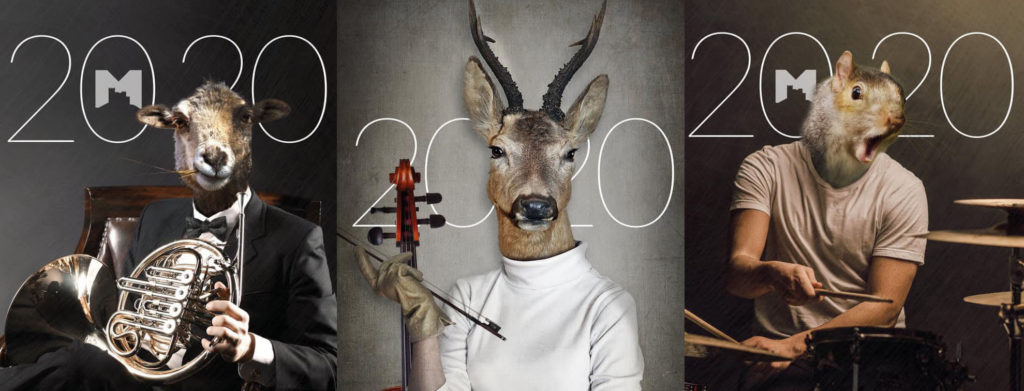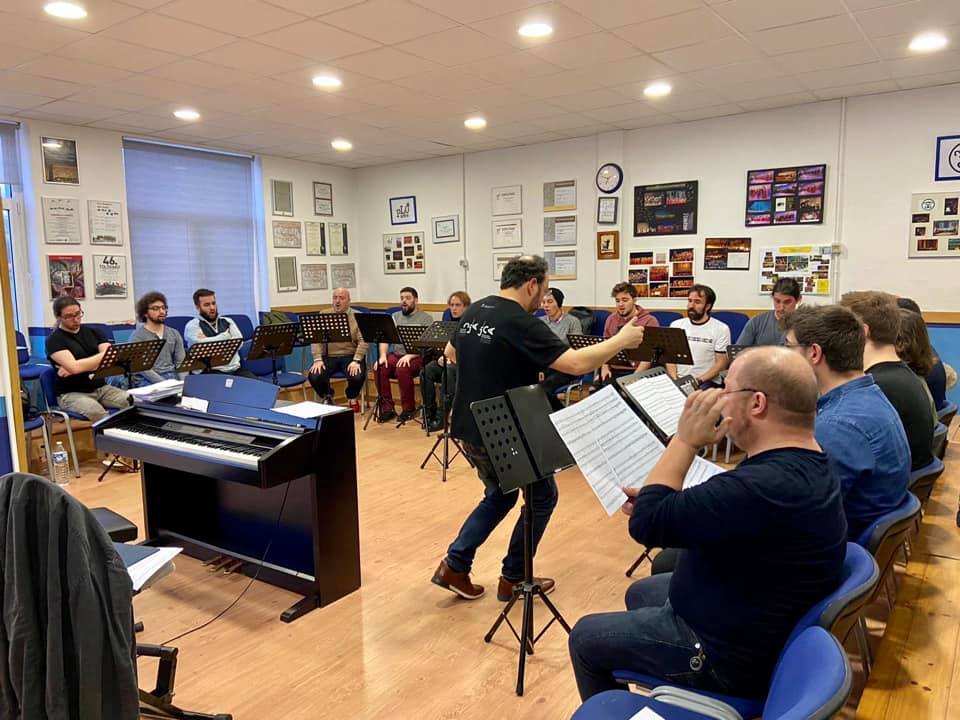Revista Scherzo – Junio 2020 – por Eduardo Torrico
Pocas veces una formación coral española ha llamado tanto la atención, no solo en nuestro país sino también fuera, como El León de Oro. Fundada en Luanco (Asturias) hace dos décadas, sus aspiraciones iniciales eran bien modestas. En realidad, el coro se creó ad hoc para un concurso local de canto —en el que, por cierto, no ganaron; quedaron segundos—, pero su crecimiento, especialmente en los últimos años, ha sido imparable. El artífice de ello es Marco Antonio García de Paz, a quien el éxito de El León de Oro le ha convertido en uno de los directores corales españoles más solicitados del momento. Hace dos años El León de Oro grabó para Hyperion un CD con música polifónica del Renacimiento, que fue recibido con los mayores elogios. Ahora está a punto de ver la luz su segundo disco con el sello inglés, en el que, junto al propio García de Paz, interviene de nuevo como invitado Peter Phillips, fundador y director de Tallis Scholars. El CD está íntegramente dedicado a Francisco Guerrero, uno de los grandes maestros de la polifonía renacentista española.
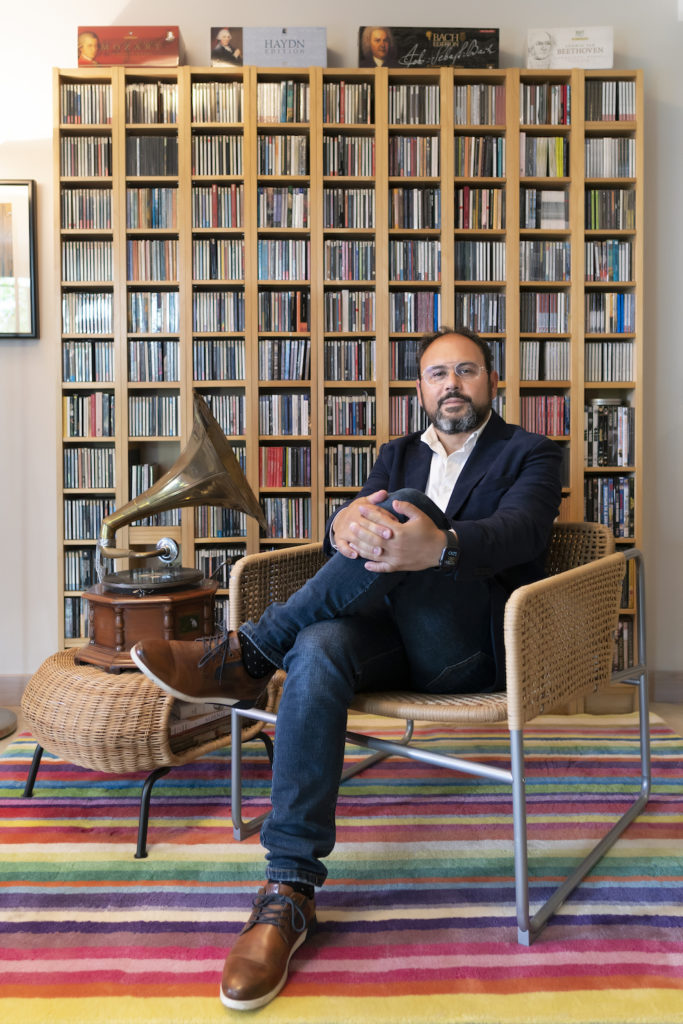
¿Cómo ha llevado el confinamiento?
Lo he llevado de la mejor manera posible. Tengo la suerte de vivir en un buen sitio, frente al mar, en una casa con jardín… Así que no me puedo quejar, no puedo decir que haya estado en una cárcel. Vamos a ver qué ocurre a partir de ahora, porque el sector de la música lo va a tener complicado, ya que nuestro ámbito es estar junto al público, y eso no va a poder ser como antes, al menos durante un tiempo.
A mí, desde luego, la pandemia del coronavirus me ha cogido en un momento profesional clave… En fin, me lo tomo como un paréntesis, con la esperanza de que no pase demasiado tiempo hasta que volvamos a la realidad cotidiana.
Cuando habla de momento profesional clave, imagino que se está refiriendo a su decisión de abandonar la faceta docente, en la que llevaba muchos años, para dedicarse por completo a la dirección.
Llevaba, en efecto, veinte años de funcionario. En todo ese tiempo, he dado clases, tanto de violín como de dirección y música de cámara, en conservatorios del Principado de Asturias. Aprobé la oposición en el año 1999 y mi destino fue Gijón. Hace unos años estuve en comisión de servicios en el Conservatorio Superior de Oviedo y tres años después, al término de dicha comisión, regresé a Gijón. La experiencia en Oviedo fue muy enriquecedora. Fue a mi vuelta a Gijón cuando empecé a pensar en dejar temporalmente la docencia en el conservatorio, pues había algo dentro de mí que me empujaba a pasar a otro estadio como artista.
¿Era una cuestión de saturación o ha tenido que ver también el problema de las incompatibilidades establecidas por algunas comunidades autónomas?
Ha sido un cúmulo de circunstancias. Por un lado, había una necesidad de dedicar más tiempo a la faceta de director, ya que mi actividad artística estaba aumentando mucho. Por otro lado, la ley de incompatibilidades no me permitía conjugar ambas cosas.
Desde hace algún tiempo se viene denunciando esa intransigencia por parte de algunas administraciones para que los músicos puedan compatibilizar su actividad docente con la artística, pero sin duda el caso más paradigmático ha sido Asturias. Ha habido un notable número de profesores que han renunciado a dar clases para poder tocar o, como en su caso, dirigir. Sin embargo, vemos cómo hay conservatorios, principalmente fuera de España, donde una actividad artística intensa se contempla como un plus, porque se entiende que quien toca o dirige con frecuencia es porque es bueno en lo suyo.
Opino que lo deseable es precisamente eso. Tener actividad artística es uno de los indicadores de la calidad de un músico. Estoy seguro de que quien tiene este plus de labor intensa, luego, como maestro, puede transmitir su experiencia a los alumnos. La práctica hace al maestro, no hay otra fórmula. Pero no creo que sea un problema de Asturias, sino de una ley obsoleta que en unos sitios se aplica con más rigor que en otros. Me consta que hay problemas en muchos otros lugares, no solo aquí. En centros docentes en los que hay una mentalidad un poco más abierta o que son privados, lo de tener una actividad artística intensa no solo es deseable, sino que incluso es obligatorio. Y no hace falta salir de España para comprobarlo, aunque en otros países se da con mucha más frecuencia. Son centros docentes en los que se busca contar con profesores e intérpretes de prestigio, porque son un reclamo para tener más alumnos. Es una cuestión del modelo: en España apruebas la oposición, tienes exclusividad docente y no se permite realizar una vida artística paralela; fuera de España, estás obligado a demostrar permanentemente que tu trabajo es válido, porque, si no lo es, no te renuevan. La docencia continúa siendo una de mis pasiones y la sigo ejerciendo habitualmente en cursos y clases magistrales para instituciones y universidades. Ojalá algún día pueda hacerlo con algo más de continuidad en algún centro que lo permita.
En su caso, lo positivo de esta situación es que ha llegado a ella por la gran actividad que ha mantenido en estos últimos años, especialmente, dirigiendo a El León de Oro, el coro que fundó hace veintitrés años. De ser un ‘coro de autor’, como usted lo definió en su día, con aspiraciones modestas, El León de Oro ha pasado a ser el coro español de moda, si me permite esta expresión.
El coro ha ido poco a poco evolucionando, haciéndose como marca… Este año íbamos a tener una enorme actividad, con más de treinta conciertos cerrados, pero el coronavirus se ha llevado por delante muchos de estos proyectos. Treinta conciertos en una temporada suponen situarnos al nivel de los grandes coros europeos. La pandemia nos ha cogido en una fase de expansión muy considerable, tanto para el coro como para mí mismo, porque, al margen de mi actividad al frente de El León de Oro, estoy recibiendo numerosas invitaciones para dirigir a otras formaciones.
Esa fase de expansión coincidía con el inicio de la profesionalización del coro, que, no podemos olvidar, siempre fue un coro no profesional.
Efectivamente, en eso estábamos.
El impulso y trabajo de nuestra agente, Adela Sánchez, han sido fundamentales para ello. Habíamos profesionalizado en parte la estructura del coro, la oficina, la gerencia, gracias a la captación de patrocinios de tres empresas privadas, entre las que destaca la gran tecnológica SATEC y la ayuda e impulso de su fundador, Luis Rodríguez Ovejero. Estos patrocinios nos habían permitido igualmente planificar una temporada regular de unos ocho o diez conciertos en Asturias, que estábamos a punto de anunciar públicamente justo cuando empezó el confinamiento. Asimismo, se había conseguido potenciar la escuela coral que tenemos, que es nuestro auténtico semillero para el futuro. Por otro lado, habíamos recibido el Premio 2020 de la Asociación Española de Festivales de Música Clásica (FestClásica), que llevaba implícito hacer con ellos diez conciertos. Seguíamos nuestra colaboración con Peter Phillips como director invitado y con nuestras grabaciones para el sello discográfico Hyperion… Estaba siendo un año increíble, pero las cartas han venido dadas así y hay que aceptarlo; todo el mundo lo está pasando mal. Lo fundamental es que creo que ya habíamos encontrado un hueco importante en España, algo que nunca ha resultado fácil para una agrupación coral. Estábamos dando los pasos adecuados y recogiendo los primeros frutos. O, mejor dicho, estamos dando los pasos adecuados, porque, como le decía antes, quiero pensar que esto va a ser un simple paréntesis y que todo, antes o después, volverá a su cauce. El desafío para un futuro cercano es poder profesionalizar también, según las circunstancias, la plantilla del coro, sin perder nuestra idiosincrasia.
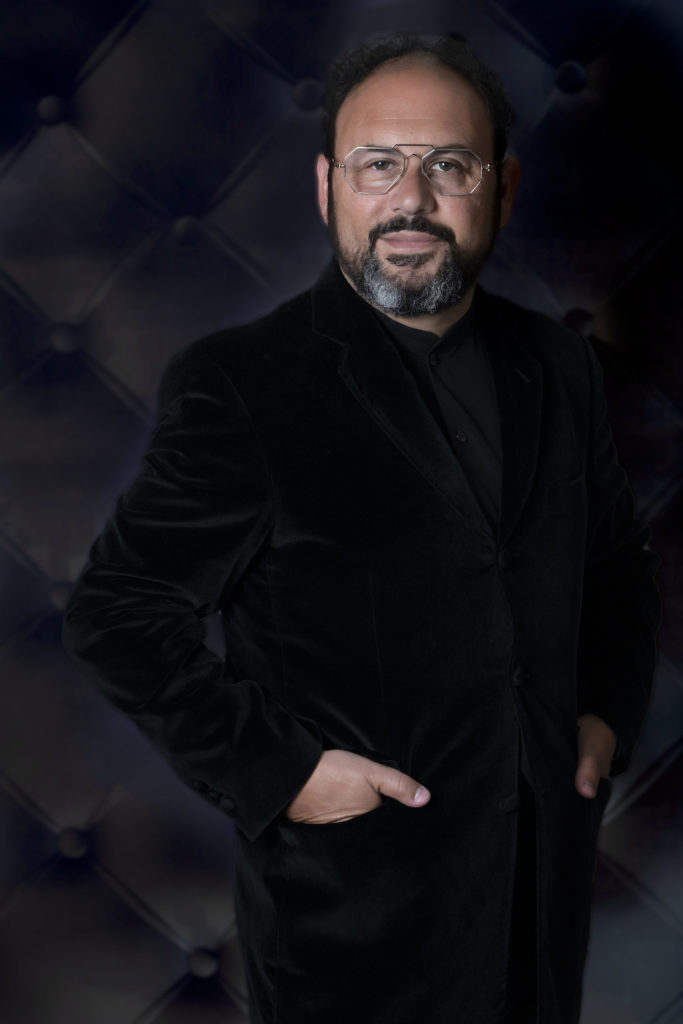
Habla de captar patrocinios… Hoy día un músico tiene que dedicar casi más tiempo a buscar patrocinadores y a promocionarse que a la propia actividad musical. Sobre todo, en España, donde, además, no existe la tradición coral que puede haber, por ejemplo, en el Reino Unido.
Por eso tomamos en su momento la decisión de profesionalizar las estructuras del coro, porque un músico se debe dedicar primordialmente a la parte creativa, es decir, a investigar, elaborar programas, ensayar y hacer música. En cuanto a lo que dice de la escasa tradición coral que existe en España, creo que siempre hemos sido un país de grandes voces, de amantes de las grandes voces y, por ende, de amantes de los coros, pero es verdad que no ha se ha dado casi nunca la mentalidad de que es necesario trabajar como pretendemos hacerlo nosotros, es decir, con una estructura profesional y con captación de patrocinios tanto públicos como privados. Somos una punta de lanza, estamos abriendo un camino no explorado por el que luego van a poder transitar otras agrupaciones, pues creo sinceramente que lo que ya hemos logrado es muy notable.
¿Hasta qué punto les ha ayudado Amarae morti, el primer disco que publicaron hace ahora dos años en Hyperion, sello que está a punto de poner en circulación su segunda grabación? Nunca hasta ahora un coro español había grabado polifonía renacentista para una discográfica internacional tan prestigiosa como Hyperion.
Nos ha abierto infinidad de puertas.
Tú puedes hacer muy bien tu trabajo, pero el hecho de grabar para un sello o para otro ofrece, por lo general, resultados muy diferentes. Y las diferencias, a veces, son abismales. La visibilidad que nos ha proporcionado Hyperion ha sido enorme, no solo en Europa, sino también en América y en Asia. Confiamos en que nuestro segundo disco con ellos refuerce esta situación. Estaba previsto que se publicara a finales de junio, pero ahora, con la crisis del coronavirus, me temo que va a sufrir un cierto retraso. Por otro lado, estamos ya empezando a elaborar un tercer disco para Hyperion, pero no sabemos exactamente cuándo podrá ver la luz.
Esta segunda grabación en Hyperion está íntegramente dedicada a uno de los grandes maestros del Renacimiento español, Francisco Guerrero.
Hace falta redescubrir a Guerrero, en mi opinión. En el disco hemos incluido obras sacras, que ha dirigido Peter Phillips, y obras profanas, que he dirigido yo. Algunas de estas obras son bastante desconocidas, pero muy interesantes. Con sinceridad, creo que hemos hecho un gran trabajo. A pesar de que Hyperion está detrás, disponemos de un gran control sobre todo el proceso de elaboración del disco, así que ha quedado muy a nuestro gusto.
¿El tercer disco será también con polifonía renacentista española?
Tanto Peter Phillips como yo creemos que ahora mismo es primordial que un grupo español como El León de Oro se dedique a hacer polifonía renacentista española. Tiene bastante sentido. Si hemos profundizado en la obra de Guerrero es porque quizá es un compositor que no está tan valorado fuera de España como merecería estarlo. En esa misma línea, seguramente el tercer disco va a estar dedicado a otro de los grandes maestros de nuestra polifonía renacentista, Cristóbal de Morales. Nos apetece mucho hacer Morales, pero también podríamos seguir con Guerrero. Victoria, no tanto, pues está muy frecuentado. Somos libres a la hora de elegir, que es otra de las ventajas que nos brinda colaborar con Hyperion. Morales y Guerrero son dos genios de nuestra música a los que tenemos que mimar y, sobre todo, que proyectar internacionalmente. Todo lo que diga sobre ellos es poco.
La polifonía de nuestro Renacimiento hasta hace no mucho era patrimonio de los ingleses. Hyperion, sin ir más lejos, acaba de publicar el primer monográfico dedicado a Juan Esquivel, a cargo del grupo De Profundis. Los músicos españoles están concienciados de que hay que explotar este patrimonio, pero ¿qué hace falta para que los programadores se conciencien también?
Queda mucho por hacer, y nosotros estamos en ello. El León de Oro es un coro versátil, pero donde mejor se mueve es en la polifonía renacentista española. Esa es nuestra vocación y no vamos a cejar en el empeño. Quizá sea un inconveniente que nos estemos volcando tanto en el repertorio sacro, porque algunos programadores piensan que se trata de una música demasiado profunda y exigente. Pero es que la belleza pura de esta música no se puede adulterar en exceso por parte de los interpretes, hay que hacerla con gran cuidado, no cabe otra fórmula… Por si tuviéramos alguna duda, que no la hemos tenido nunca, ahí está Peter Phillips para insistir en que hay que seguir por estos derroteros. Phillips es uno de los mayores expertos del mundo en música renacentista, y lo es desde hace varias décadas. Nos está ayudando muchísimo; de hecho, gracias a él se nos empieza a conocer en Inglaterra, que es algo fundamental, porque el centro neurálgico de la interpretación de esta música sigue siendo Inglaterra. Que conste que no somos los únicos enfrascados en esta tarea: es evidente que Jordi Savall lleva mucho tiempo en este camino, y también hay que poner en valor lo que han hecho Carlos Magraner con su último CD de Morales o grupos como Musica Ficta, Los Afectos Diversos, Vandalia, Gradualia o Cantoría, que están trabajando duro para difundir este patrimonio inigualable. Lo que me comenta de Esquivel, pues sí, lo podría haber hecho alguien de aquí, ¡para qué nos vamos a engañar! Pero ellos, los ingleses, saben muy bien lo que hacen: investigan y cuando ven que algo es bueno, no dudan en hacerlo. En fin, hay que invertir tiempo, ganas, pasión y sabiduría, pues, de lo contrario, no sale un buen producto. Y si no sale un producto bueno, entonces no tiene trascendencia alguna lo que haces.
Igual estoy equivocado, pero tengo la impresión de que nuestros gestores musicales consideran que la música que es demasiado intelectual y que implica un esfuerzo escucharla no merece la pena… ¿No es menospreciar al público?
Este tipo de música, si la sirves bien, apasiona a cualquiera que la escuche. El público recibe mejor la música cuanto mejor sea esta. El problema también radica en que es música esencial, que no admite demasiada manipulación por parte del intérprete, hay que crear un discurso a partir de muy pocos elementos e información. Manipulación en el sentido de contaminación. Me refiero a que a veces nos empeñamos en buscar la moralidad de esta música o sus mensajes, cuando lo que hay que hacer es dejarla sonar y que hable por sí misma, porque es belleza pura. Eso puede hacer que haya intérpretes que tengan un cierto miedo a afrontarla y que opten por otras cosas que sí admiten más margen de aportación, es decir, que permiten hacer algo más personal. El ego del director aquí tiene poca cabida.
Mencionaba antes la versatilidad de El León de Oro en cuanto a repertorio, pero también es versátil en cuanto a interpretación. Me refiero a que existe un modelo bastante estandarizado en la polifonía renacentista que responde al canon de las interpretaciones históricamente documentadas, y que tiende a reducir efectivos, a ser minimalista. A ustedes, en cambio, no les da miedo ser una masa coral nutrida, algo que en la actualidad está en desuso.
Creemos en el sonido del grupo, en que haya consistencia, porque eso nos permite afrontar obras de mayor formato, no solo obras a cuatro o a cinco voces. Pero, aunque seamos un grupo numeroso, sonamos como un grupo pequeño cuando lo requiere la ocasión. Lo establecemos en función de la propia música, porque hay obras que no admiten quizá tanta gente. En nuestro nuevo disco incluimos obras en que intervienen doce voces, pero también hay otras con treinta y ocho voces. En cualquier caso, El León de Oro no tiene voces grandes, lo que tiene son voces compenetradas y con mucho compromiso por buscar esa consistencia a la que me refería.
No obstante, nos esforzamos cada día en buscar la máxima calidad vocal. Sea como fuere, no estamos en absoluto fuera, ni por lo más remoto, del sentido que se busca para esta música. En ese aspecto, creo que ofrecemos una combinación muy interesante.
¿Qué proyectos tiene para dirigir a otros grupos?
Este pasado mes de mayo tenía que haber dirigido dos conciertos a un coro profesional en Ciudad de México, pero, por obvias razones, no ha podido ser, aunque parece que queda pospuesto y que no habrá problema para hacerlo en 2021. Por otro lado, como bien sabe, soy el director titular del Joven Coro de Andalucía. Los dos o tres próximos años con esta agrupación van a ser apasionantes. Haremos pronto las pruebas de admisión y daremos paso a una nueva generación de jóvenes músicos. Para 2022 tenemos previsto hacer con este coro una ópera, que será la primera que dirija en mi carrera. Además de todo esto, en Cataluña han surgido conciertos en varios festivales con el Coro de Cámara de Granollers para hacer música antigua. Con el Coro de RTVE estaba programado el Requiem de Guerrero para este mes junio, pero, claro, tampoco se va a poder hacer, aunque yo todavía no lo sé. Realizaré junto a Jordi Savall una gira con la Novena sinfonía de Beethoven y todo indica que vamos a colaborar en otros proyectos en los próximos años. Tenía varios conciertos como director y actividades por toda España, Francia, Grecia e Italia este verano. Sin embargo, mandan las circunstancias: unas cosas se van a poder hacer a su debido tiempo, otras han quedado aplazadas y otras no se sabe realmente qué va a ocurrir con ellas.
Había prevista también una colaboración de El León de Oro con Patrimonio Nacional.
Sí, es un proyecto muy importante, pues quieren que actuemos en los reales sitios, tanto palacios como monasterios, con un ánimo especialmente centrado en la investigación. Esta colaboración con Patrimonio Musical interesa mucho a nuestros patrocinadores, que están dispuesto a ayudarnos en todo lo que puedan. El proyecto pasa por encontrar música antigua desconocida tanto en España como en México y otras zonas de Iberoamérica, interpretarla y, si es posible, grabarla. Estaba previsto un ciclo de conciertos para la temporada 20/21, pero, obviamente, eso queda alterado por la crisis. Confío en que, una vez que pase todo esto, lo podamos hacer. El primer concierto del proyecto iba a haber tenido lugar el pasado 4 de abril, en el Monasterio de las Descalzas Reales, con la Misa Salve Regina de Tomás Luis de Victoria. Para mí era un sueño poder hacer música de Victoria en un sitio tan vinculado a él como son las Descalzas, donde ejercía de organista cuando falleció. Creo, de todas formas, que finalmente lo vamos a poder hacer. También había un programa sobre Copérnico que se iba a hacer en el Festival de Música Antigua de Aranjuez de este año.
Resulta curioso su vocación y su pasión coral, porque usted es violinista.
Gracias a mi formación como violinista tengo experiencia de lo que es el trabajo en una orquesta sinfónica. Además, he sido niño cantor, he realizado mis estudios de dirección coral en Musikene y he podido desarrollar una extensa trayectoria como director coral. Todo ello me ha permitido conocer en profundidad el mundo de la voz. Por lo tanto, mi perfil como director se ensancha, mi background como músico atiende por igual la música instrumental y la vocal, por supuesto, y este es otro reto próximo que me planteo: quiero empezar a probarme en el mundo coralinstrumental y el repertorio sinfónico-coral. Lo más inmediato, antes quizá que la ópera con el Joven Coro de Andalucía que mencionaba, es hacer Bach, Brahms, Beethoven… Con cautela, eso sí, porque una carrera se construye paso a paso, huyendo de las prisas.
Si le llegan a decir hace veintitrés años, cuando fundó en Luanco El León de Oro, que el coro iba a estar donde está ahora, ¿qué habría dicho?
Pienso que en estos momentos tenemos más visibilidad y más oportunidades de hacer cosas que en nuestros inicios, obviamente, pero la esencia, el interés por la música y la pasión que nos mueven sigue siendo iguales o, incluso, son mayores ahora. No, no pienso que se trate de una cuestión de éxito. Para mí el éxito consiste en poder seguir haciendo lo que te gusta y hacerlo, además, como te gusta. Pero, claro, sería absurdo siquiera insinuar que alguien de los que fundamos el coro en aquel momento podría imaginar que íbamos a estar hoy día donde estamos.
Scherzo_363-Junio20 entrevista Marco (pdf)
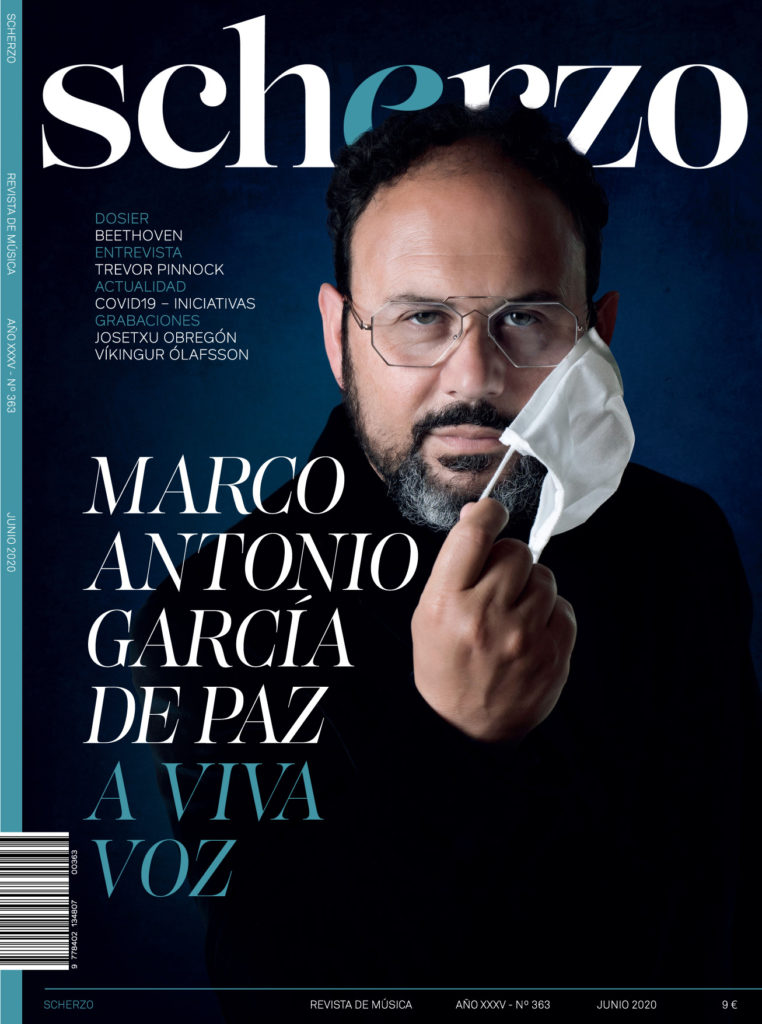
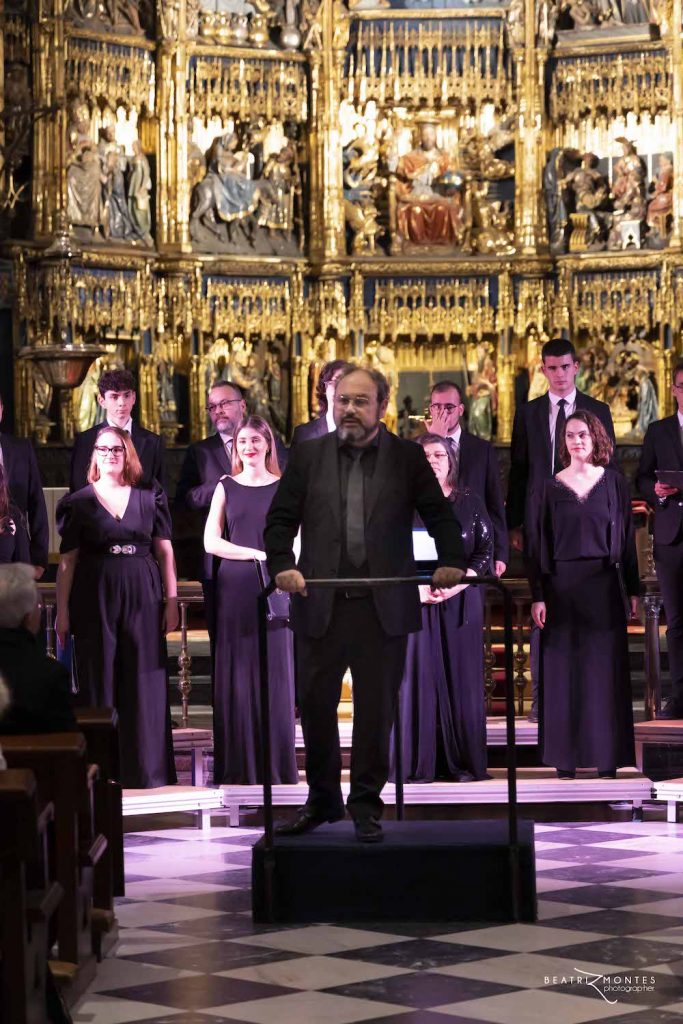

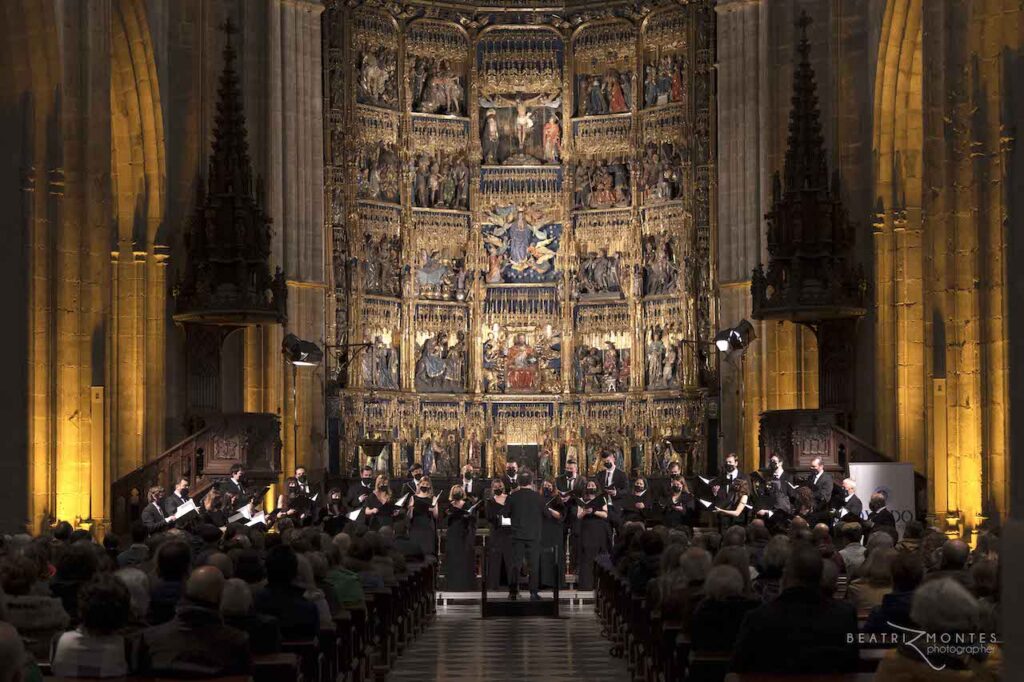
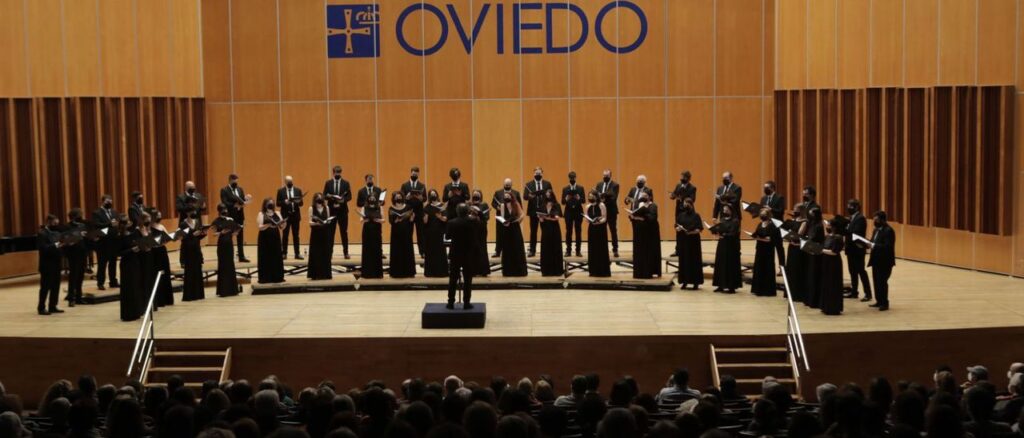
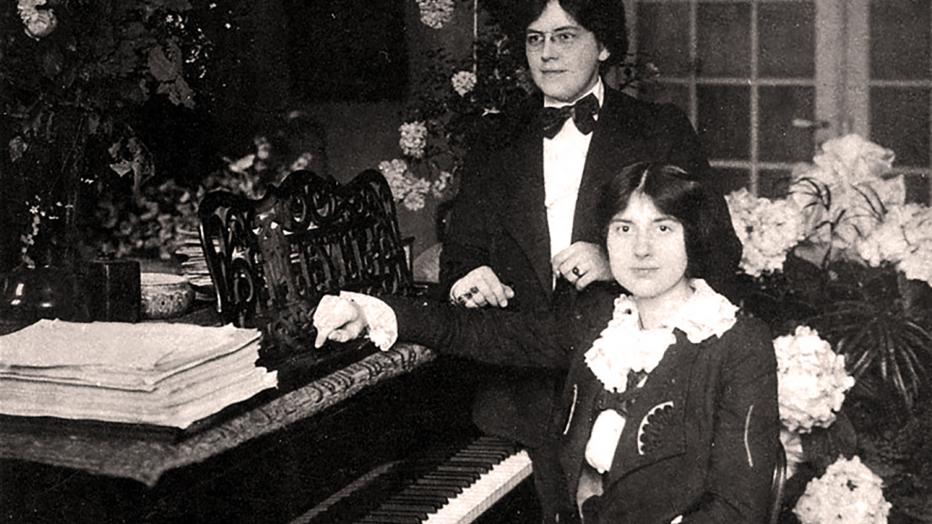
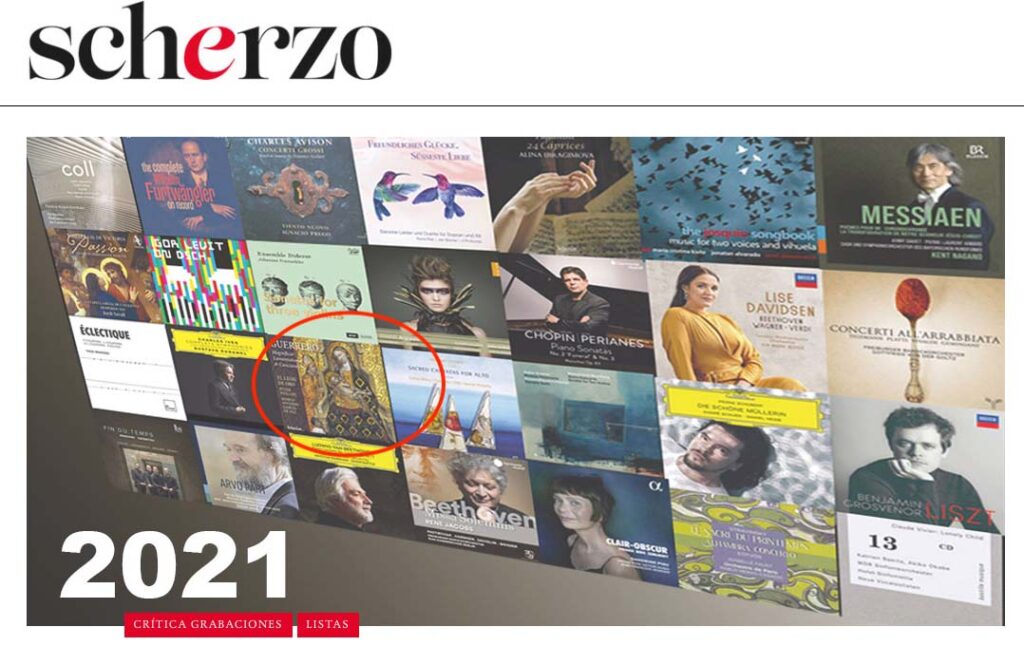
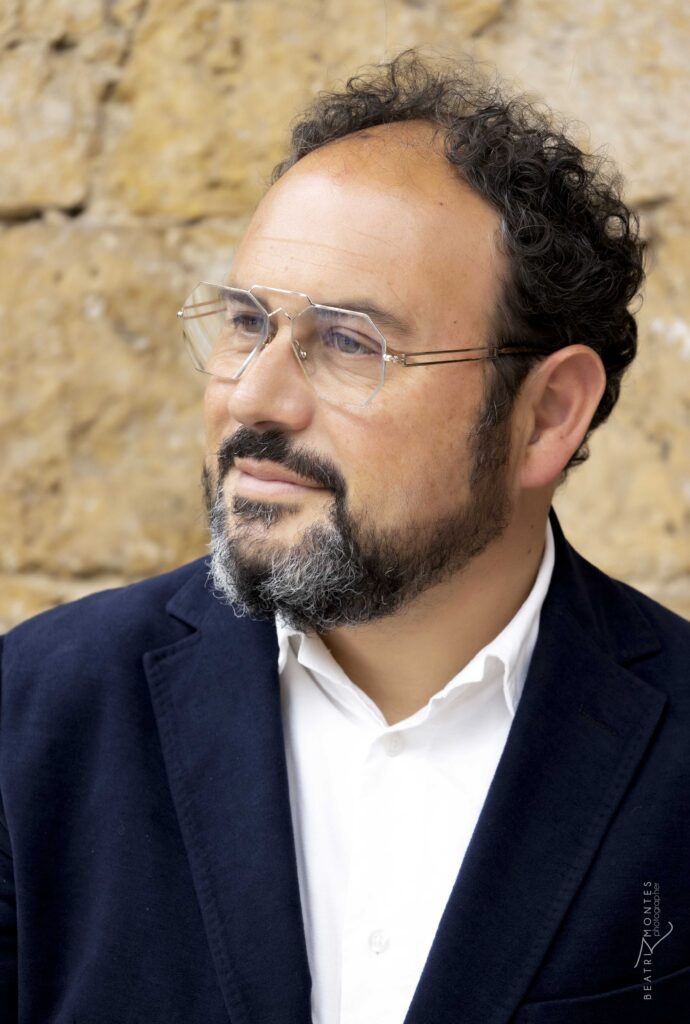
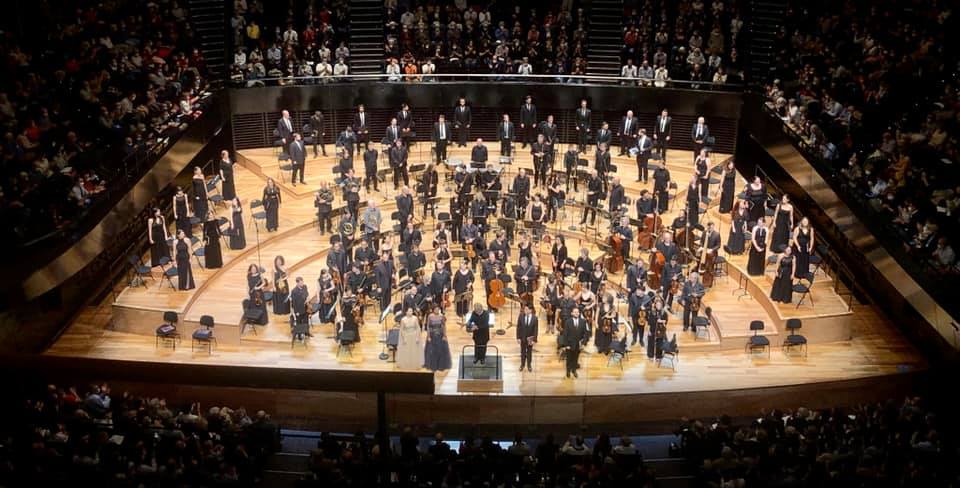

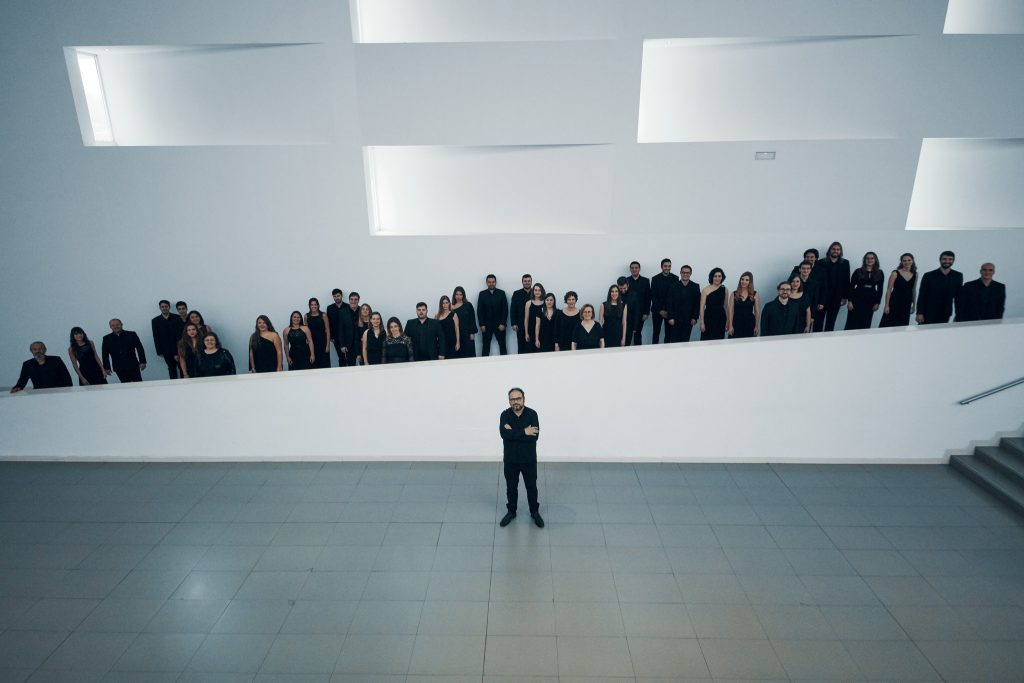
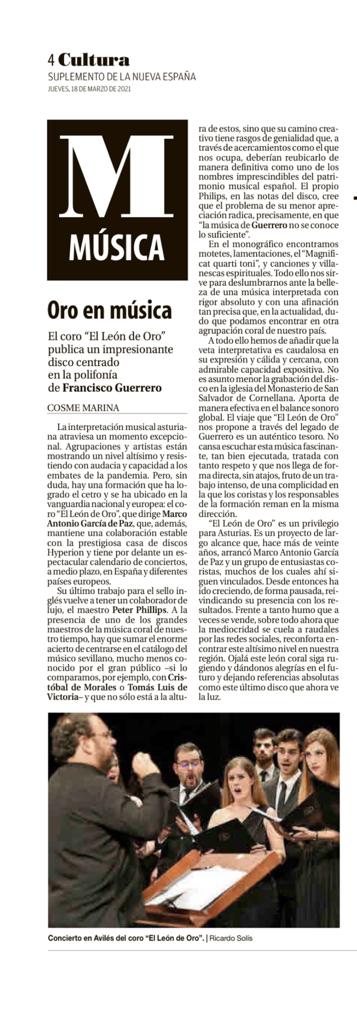
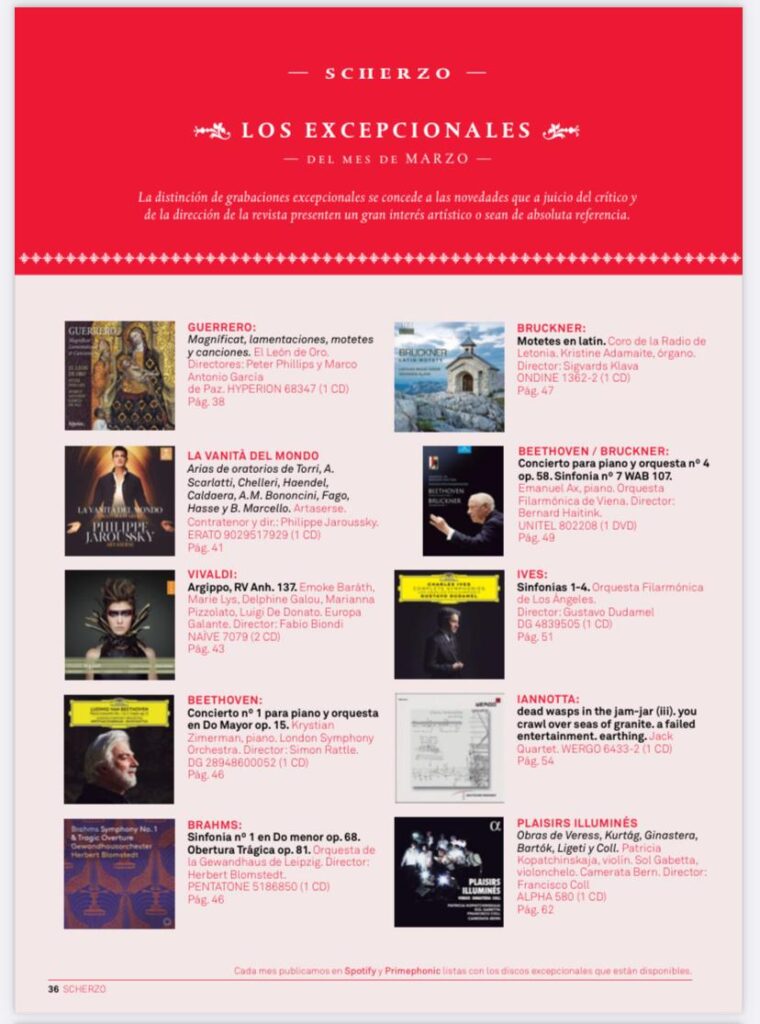
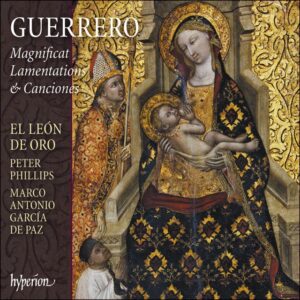
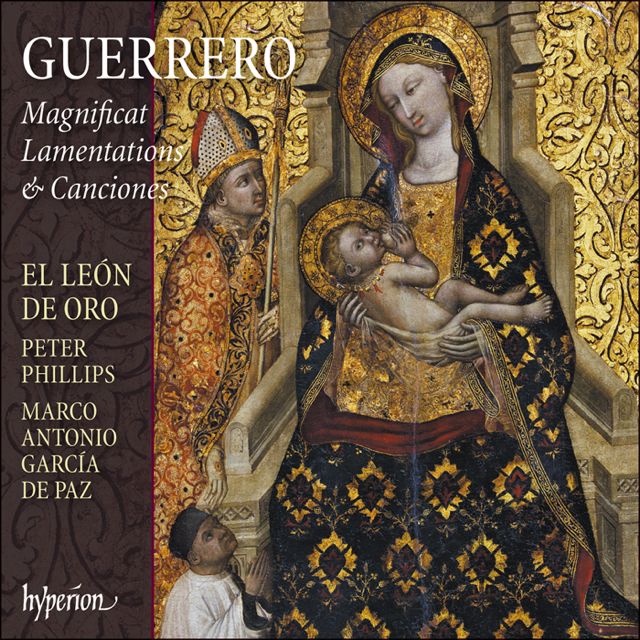
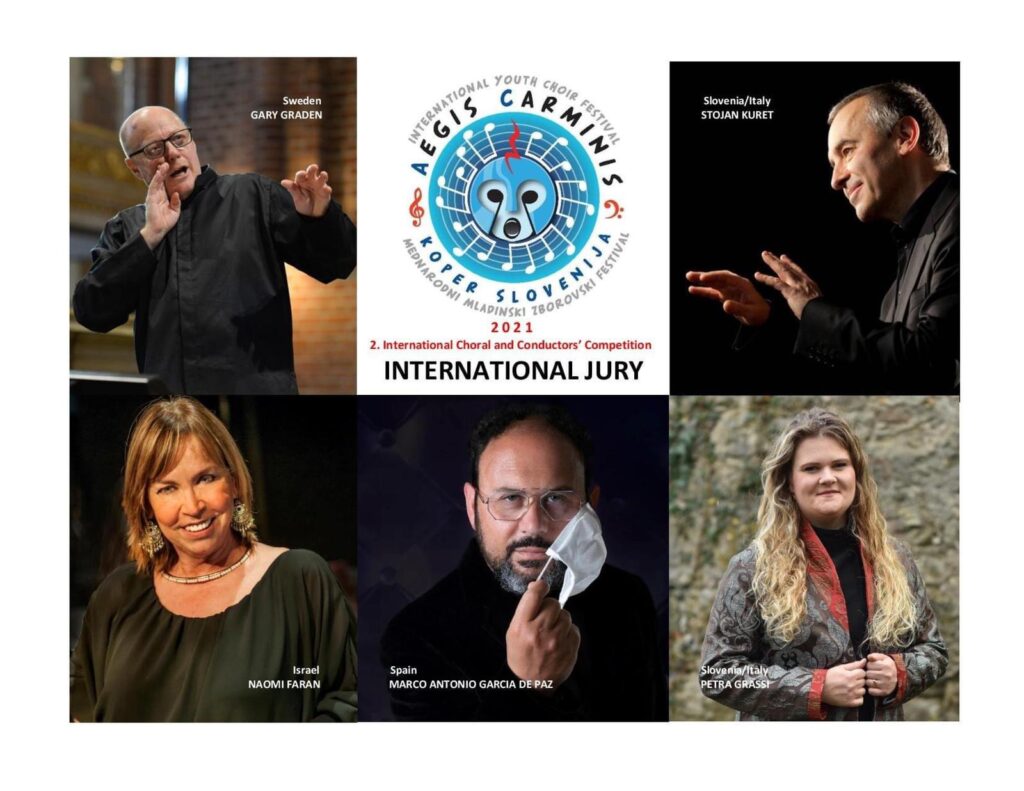
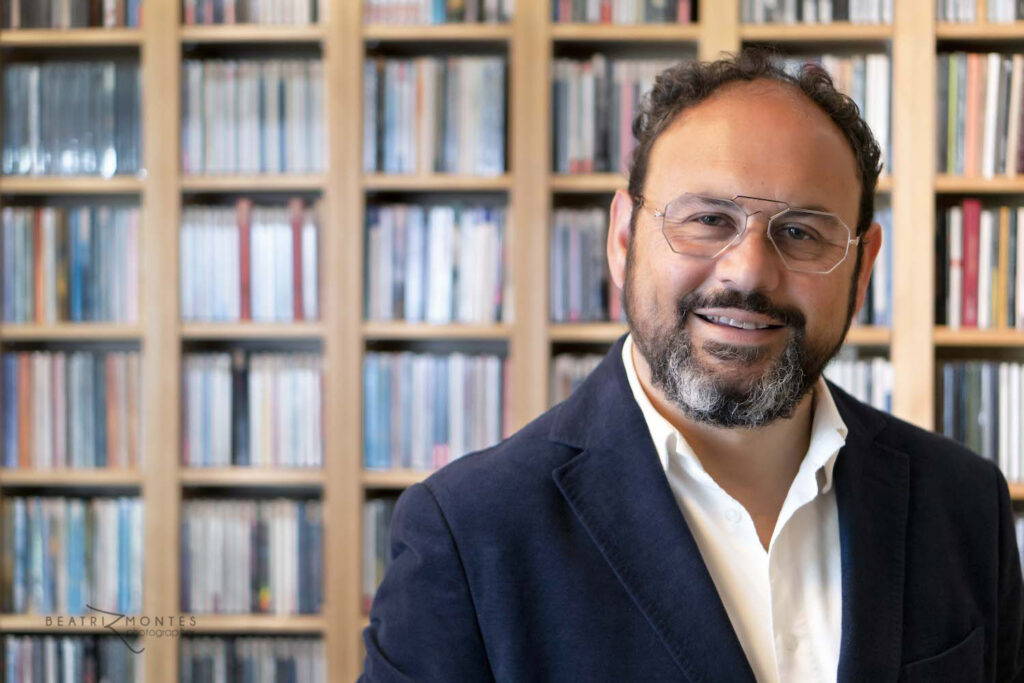
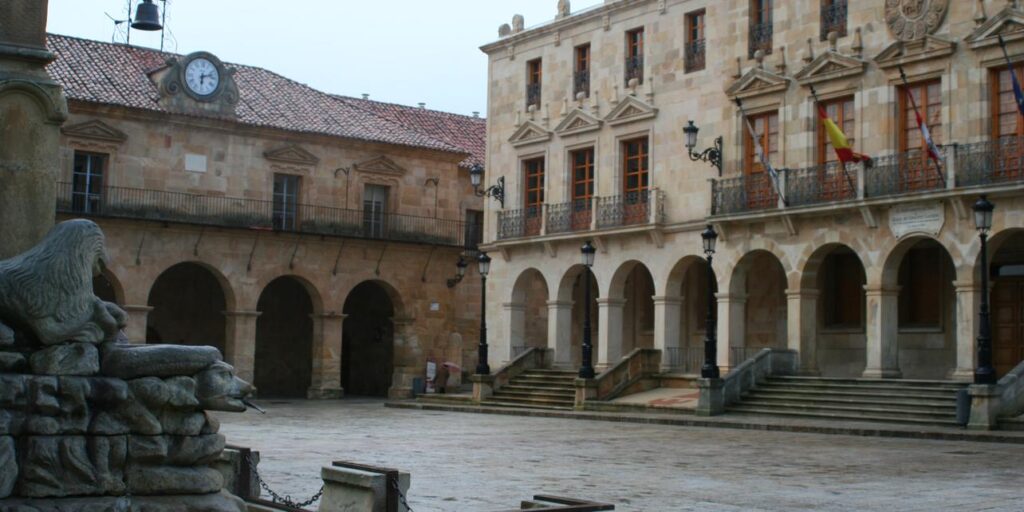
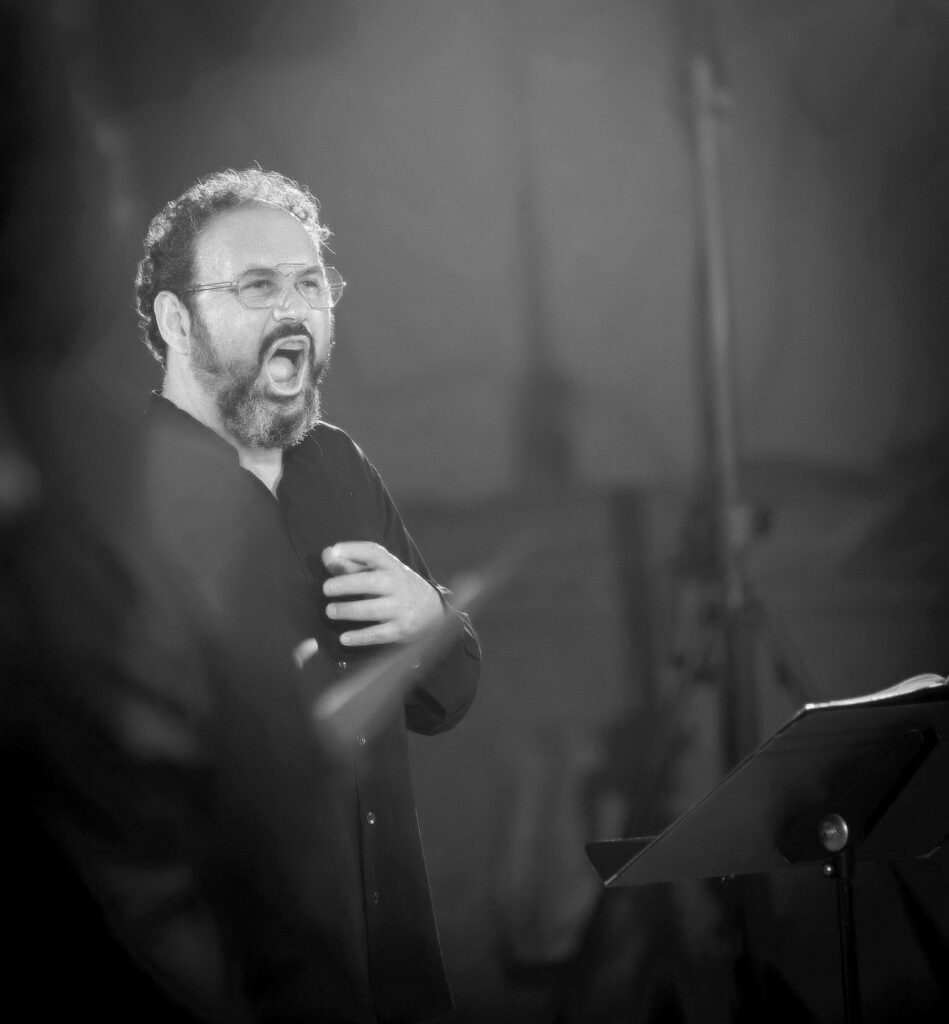
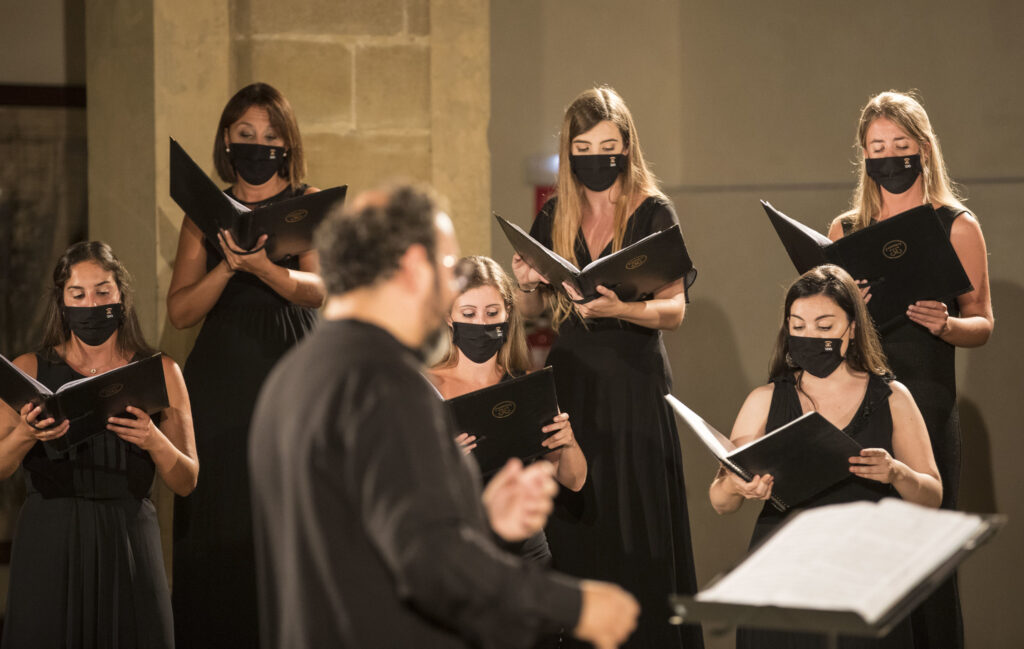
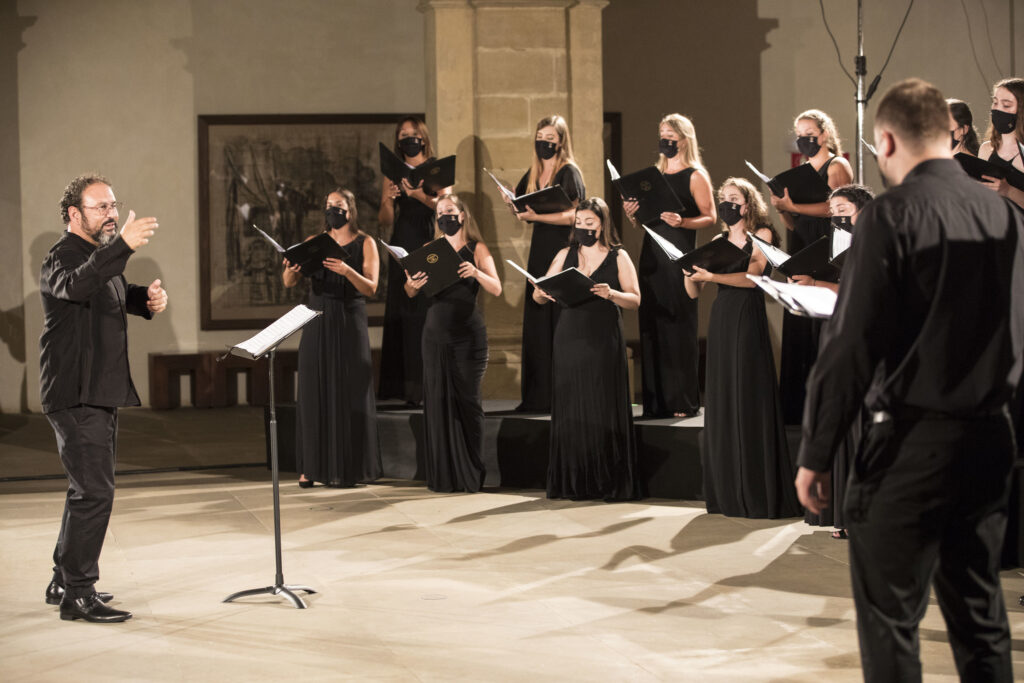
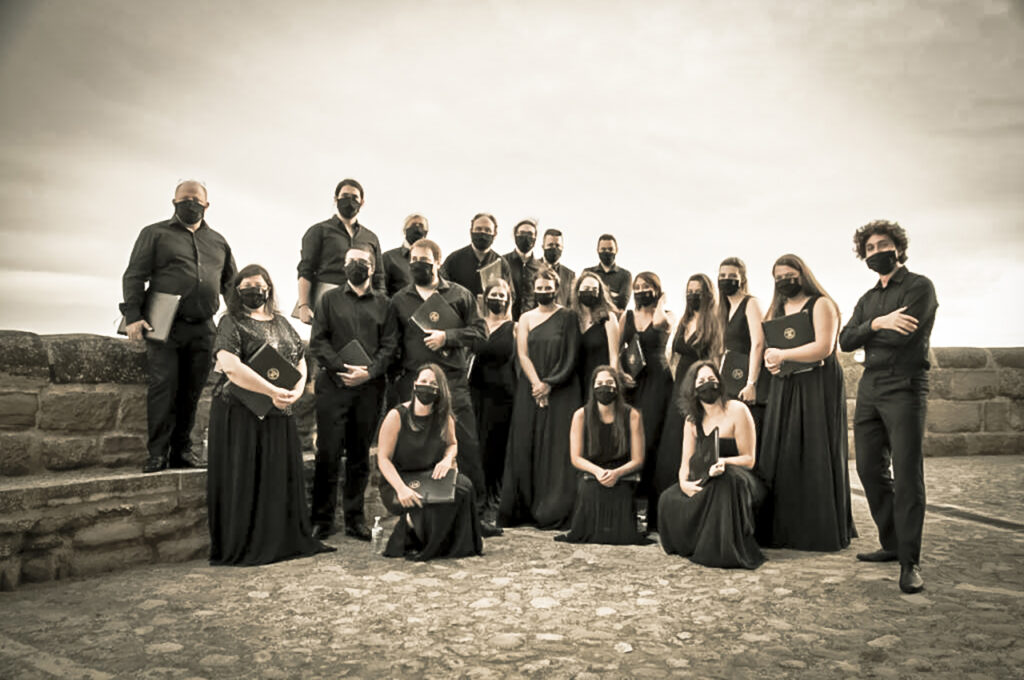
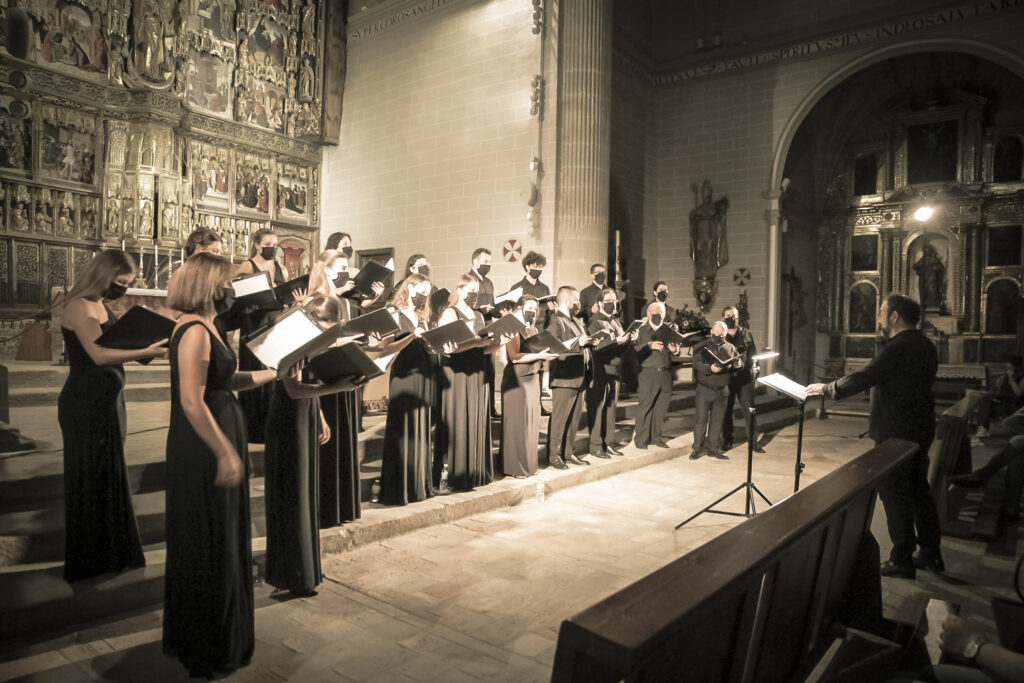
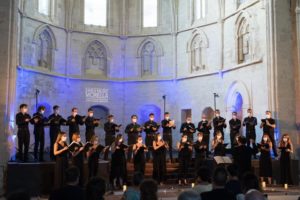
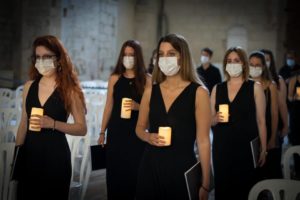
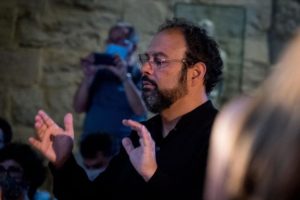


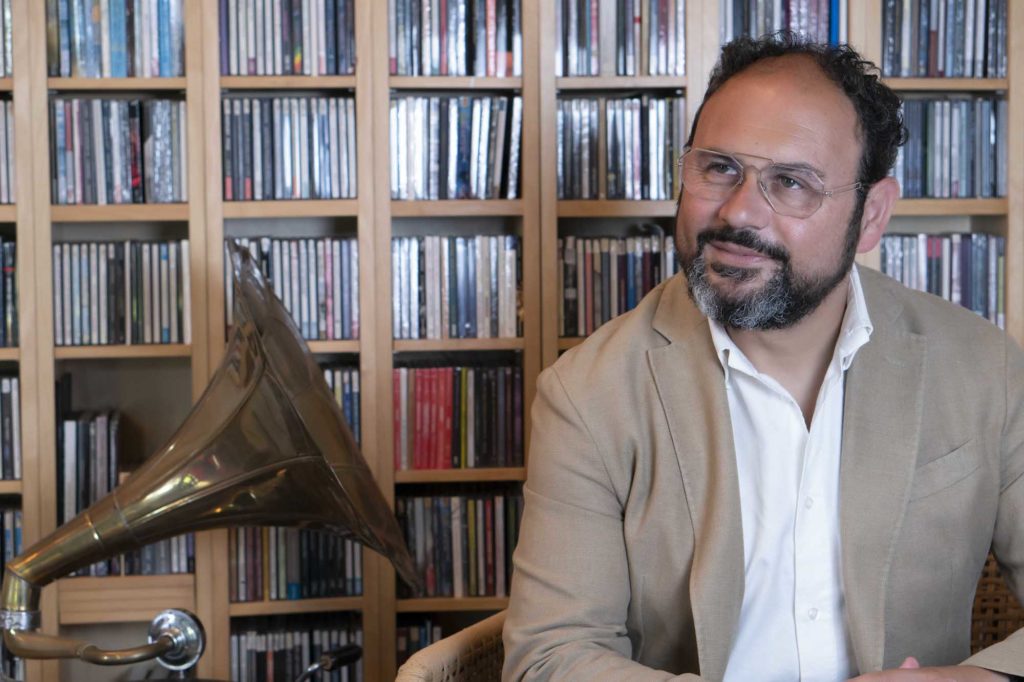 The
The 